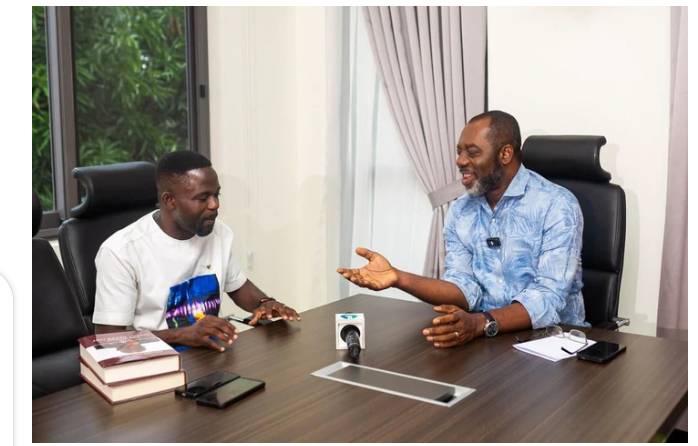The 2024 Ghanaian elections will go down in history as a turning point—a moment when citizens voiced their frustrations against what many view as eight years of poor governance under President Nana Akufo-Addo. Amid the political fallout, Dr. Matthew Opoku Prempeh (popularly known as Napo) has faced significant criticism for failing to secure a stronghold for the New Patriotic Party (NPP) in the Ashanti Region. However, investigative journalist Manasseh Azure Awuni offers a broader perspective, urging Ghanaians not to scapegoat Napo but instead view the election results as a nationwide rejection of systemic failures.
The Backstory: The Fall of a Giant
For decades, the Ashanti Region has been a reliable electoral fortress for the NPP. Yet, in 2024, the party suffered an unexpected decline in support, leaving political analysts and party loyalists searching for answers. Critics quickly pointed fingers at Napo, a prominent figure in the region and key ally of the NPP’s presidential candidate, Dr. Mahamudu Bawumia.
Manasseh, however, challenges this narrative. He believes the election results reflect a deeper, widespread discontent with the Akufo-Addo administration’s governance, characterized by economic hardships, policy missteps, and perceived arrogance from key government officials.
The Ripple Effect of Economic Hardship
Economic distress was a recurring theme throughout Akufo-Addo’s presidency. Businesses grappled with high taxes and unfavorable exchange rates, while individuals faced the devastating consequences of domestic debt restructuring, including the loss of savings.
Manasseh likened the effect of poor governance to rain: “It doesn’t fall on only one roof.†From the bustling streets of Accra to the commercial hubs of Kumasi, the economic pain was universal. The Ashanti Region, a center of commerce and trade, felt the pinch acutely, with business owners and traders bearing the brunt of the financial downturn.
A Question of Loyalty or Survival?
One critical question arises: Should voters in Ashanti have remained loyal to the NPP simply because of ethnic ties to Dr. Bawumia? Manasseh argues that such expectations are unrealistic and dismissive of the real struggles faced by voters. He poignantly stated, “The frog says it likes water but not when it is boiling.â€
The electorate, particularly in Ashanti, prioritized their economic well-being over ethnic loyalty. Locked funds, "haircuts," and collapsing businesses were compelling reasons to reject the status quo, even for traditionally NPP-aligned voters.
Napo’s Role: A Catalyst or Convenient Scapegoat?
While acknowledging that Napo’s campaign rhetoric and perceived arrogance may have alienated some voters, Manasseh emphasizes that blaming him exclusively misses the bigger picture. The electoral defeat was not confined to Ashanti but reflected a nationwide “bloodbath†for the NPP.
Manasseh noted, “Even if Otumfuo [the Asantehene] had been made the running mate, some voters would not have been swayed.†This hyperbolic yet striking statement underscores the depth of dissatisfaction across Ghana.
A Call for Reflection, Not Finger-Pointing
The 2024 election results serve as a stark reminder of the consequences of governance disconnected from the people’s realities. Instead of searching for scapegoats, the NPP and its supporters must critically assess the systemic failures that led to their defeat.
Manasseh’s message is clear: The election was not about the shortcomings of one individual but a collective verdict on the Akufo-Addo administration’s perceived inability to address the pressing issues facing Ghanaians.
Final Thoughts: A New Dawn or More of the Same?
As Ghana navigates the post-election landscape, the question remains: Will the NPP learn from this historic defeat and rebuild trust with the electorate? Or will they continue to deflect responsibility and repeat the mistakes of the past?
For voters, the 2024 elections were more than a political exercise—they were a resounding declaration of accountability. And for politicians, the message is simple: Governance must serve the people, not the other way around.
Engage With Us
What do you think about the 2024 election results? Were they a fair reflection of the state of the nation, or do you believe other factors played a significant role? Share your thoughts in the comments below or join the conversation on social media using #GhanaElections2024.
This article was written to provide insightful analysis and encourage informed dialogue. For more stories and updates, follow us on our platforms.



